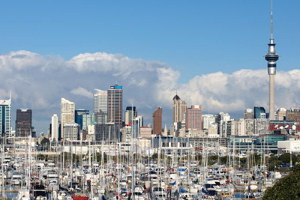Apartment market hits a plateau
Strong pipeline of new apartments coming on stream seems to be impacting on average asking prices.
Thursday, February 11th 2016, 10:00AM  1 Comment
1 Comment
by Miriam Bell

The apartment market is starting to show signs of price weakness, according to the latest Trade Me Property data.
Average asking prices for apartments, particularly in Auckland, jumped significantly in 2015.
Nationwide, the average asking price for apartments rose by 19% year-on-year to $518,350 in January 2016.
In Auckland, the average asking price for apartments increased by a hefty 25.6% year-on-year to $547,300 in January 2016.
However, Trade Me property head Nigel Jeffries said this growth has now begun to wane.
“Six months ago the average asking price of an apartment in Auckland rose by over $60,000 in a single month to $566,000 - a year-on-year increase of 49%.
“Prices then peaked at just over $600,000 in November. We have since seen a significant release of pressure when they fell to $547,000 in January.”
There appears to be some heat dissipating from the apartment market, he said.
“New developments have changed the composition of the apartment market in Auckland over the past few years.”
Further, Wellington (down 4.6%) and Christchurch (down 24.4%) also showed showing significant year-on-year declines in average asking prices for apartments.
Ray White apartment specialist Krister Samuel said that rents in the Auckland apartment market are still strong, but have been tapering off as new stock comes onto the market.
“There is a direct parallel between rents and prices in this market, so if prices plateau so too do rents.”
The heat may be coming out of the market a bit – largely due to the strong pipeline of new apartments in the works – but there are certain key drivers which mean demand will remain high, he said.
These include relative affordability, as compared to standalone houses, and the proximity of apartments to work, education and lifestyle hubs.
For example, Auckland CBD apartments are close to the hospital, universities, the port, the expanding business district, and several entertainment precincts.
Samuels said centrally located apartments also offered security and a sense of community which made them appealing to many.
Meanwhile, Trade Me Property’s data showed that the property market cooled across the board in January.
The national average asking price fell to $541,900 between December and January, while Auckland’s average asking price decreased by 0.5% to $801.400 in January.
Jeffries said there has now been three consecutive falls in national average asking prices – although they are still up 9% on a year ago.
However, while Auckland’s average asking prices ease, the majority of regions across the country are seeing modest growth.
Thirteen of the country’s fifteen regions across the country saw increases, with the “powerhouse region” of Bay of Plenty (up 12.2% year-on-year) leading the pack, Jeffries said.
| « Decrease in Auckland values | Tight listings compound slowdown » |
Special Offers
Comments from our readers
Sign In to add your comment
| Printable version | Email to a friend |


